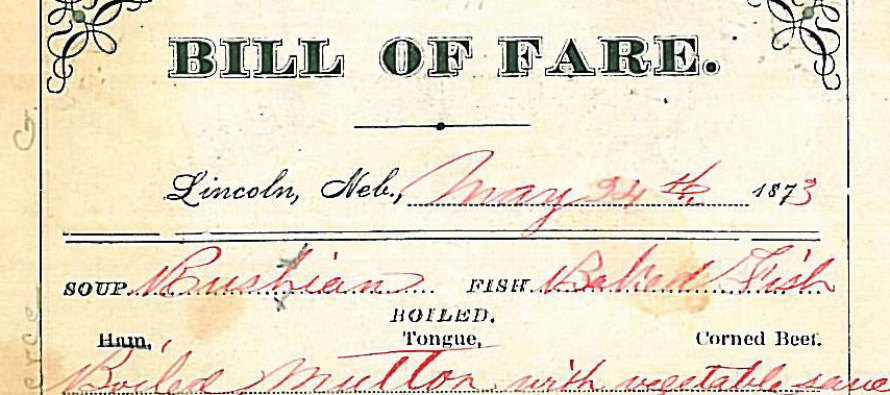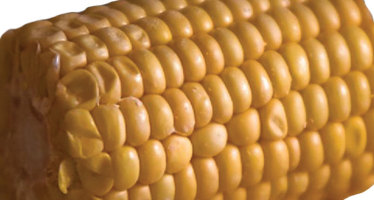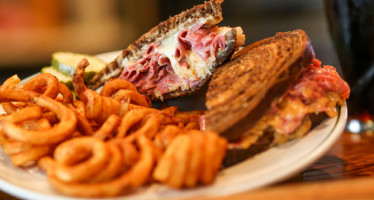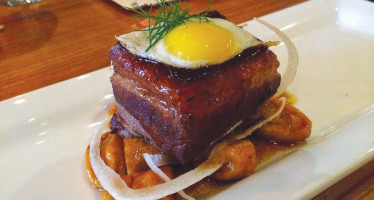Dining in Lincoln at the Metropolitan Hotel on Saturday, May 24, 1873

The first printed American restaurant menus appeared in the 1830s at Delmonico, the New York pioneer of haute cuisine and wine. “Bill of Fare” popular for much of the 19th century was by1900 eclipsed by “menu.” French and Chinese restaurants often provide English translations. The passage of time, changing tastes and recipes, requires translation through nineteenth century cookbooks. Imagine the mystification of an 1873 diner facing a 2013 menu.
The village of Lancaster became Lincoln, the state capital in 1867. Connected to the transcontinental railway in 1870, the population rose from 2,500 in 1870 to 7,000 by 1875. The Metropolitan Hotel, at the corner O and 8th Streets, was one of about a dozen Lincoln hotels in the 1870s. The hotel’s 45 rooms accommodated 80 guests. The hotel staff of ten included seven women. The dining room seated 38.
The Metropolitan bill of fare combined boilerplate food items, some crossed out, accompanied by hand written entries, based on availability. Much of the food was canned or tinned, a popular preserving process. Refrigerated railway cars appeared in 1875.
Russian soup is no doubt borsch for which Wikipedia provides six different spellings, not including Cyrillic or Yiddish. ‘Cold slaugh’ and ‘spinnage’ were proofreading failures. Baked fish was probably a local catch. Boiled cow or buffalo tongue were delicacies. Delicatessens still offer borscht, tongue, and liver and onions.
I have partaken of many lamb or agneau dishes: kabobs, shawarma with tzatziki sauce, cevapcici at Dario’s, lamb sausage, lamb burgers, rack of lamb, lamb chops, leg of lamb with mint sauce, Chinese and Moroccan style, and of course the Pascal Lamb. I have not seen mutton on a modern menu. Lamb is young, mutton is sheep gerontocracy, tougher and stronger tasting. Boiling or stewing mutton would soften the texture; the vegetable would make the meat more palatable.
Disappeared dishes, items not on contemporary menus, include Veal pot pie, American style, Vermicelli cake and New York factory cheese, perhaps a precursor for New York Cheese Cake.
Baked Heart, organ or offal, today would be pet food (or only found at exclusive restaurants). Menu silence raises questions; why no oysters, chicken, game, deer or buffalo? The only French is “entrée.”
Relishes are important sauces and condiments. They came in bottles or on serving dishes. London Club Sauce, claiming to be half the price of Worcestershire sauce, was served at Boston’s prestigious Parker House (remember Parker House rolls) in 1865. Young onions are scallions or spring onions. Green corn is young corn and is yellow. Today relishes are not on the menu, they are already on the table. Heinz opened in 1869. Their first condiment was horse radish sauce. Tomato catsup appeared in 1876.
Finally, it’s time for pastries, desserts and sweets. The more obscure pie plant pie (rhubarb pie) and the tapioca pearl pudding joined the ubiquitous pound cake.
The Metropolitan cooks had no gas or electricity. Coal and wood provided the heat for baking, braising, broiling, roasting, steaming and stewing but, Lincoln did have many grocers, meat markets and bakers, and printers.

Oliver Pollak
Oliver B. Pollak taught history at the University of Nebraska at Omaha for 38 years. He earned his doctorate at UCLA and law degree at Creighton University. He has published ten books and hundreds of scholarly and popular articles on many subjects including food and wine.
Related Articles
The Great Corn Debate
If you’ve ever read anything by Michael Pollan, you might exhibit a certain nervousness when talking about corn. (Thou shalt
Reuben, a Masque of Sandwich
A good sandwich can be an emotional thing. A good grilled sandwich, even more so. Sidle up to a Reuben
The Supper Club: Dundee Progressive Dinner
Publisher’s Note: Omega Omega Omega (Tri Omega), the culinary fraternity at the Institute for the Culinary Arts at Metropolitan Community
No comments
Write a commentOnly registered users can comment.














